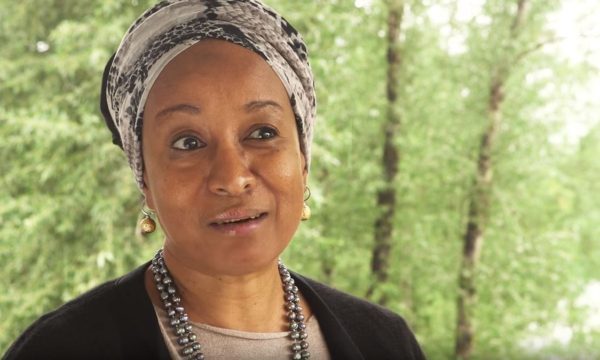The Special Adviser to President Muhammadu Buhari on Social Investments, Maryam Uwais, has accused National Assembly members of plans to manipulate the list of Social Investment Programmes, NSIP, by attempting to insert names of potential beneficiaries.
Recall that on Tuesday, April 7, the Senate President Ahmad Lawan and Speaker Femi Gbajabiamila had called for enabling legislation for the scheme especially the National Social Register, NSR, “to make it more efficient and effective”.
The NASS leadership made the call during a meeting with the Minister of Humanitarian Affairs, Disaster Management and Social Development, Sadiya Umar-Farouq against the backdrop of ongoing Federal Government’s intervention initiatives aimed at reducing the impact of COVID-19 pandemic on the most vulnerable Nigerians.
DAILY NIGERIAN reports that the NSIP comprises the School Feeding Programme, N-Power, Conditional Cash Transfer and Tradamoni which are all geared towards empowering vulnerable Nigerians.
However, in a swift reaction, the Presidential aide, described the lawmakers call as an afterthought after having repeatedly turned down their attempt to insert names of their would-be beneficiaries.
Mrs Uwais explained that the NSR comprises persons selected by the communities directly, within the constituencies of each of the NASS members.
“No person has been imported from one community to the other. They have been identified as very poor by the communities in which they reside and may not necessarily be known by the lawmakers,” she added.
According to her, the identities and status of the beneficiaries can be verified as it had been done.
“It should be noted that Nigeria has signed a Financing Agreement with the World Bank, in which the process of identification of beneficiaries was set out.
“Any departure from the process, would place at risk the accessibility to the IDA Credit and the recovered funds from the Abacha family,” she said.
According to Mrs Uwais, the lawmakers had been demanding for the inclusion of their candidates to the NSR, describing it as “regrettable and dangerous”.
“My role and singular focus has simply been to comply with the terms of Agreement and the MoU entered into by the Federal Government of Nigeria, as well as to establish an objective, efficient and transparent process for uplifting the poor out of poverty through structures and mechanisms that are credible and sustainable.”
“I have consistently reminded both NASS committee chairmen on poverty alleviation that there is no social protection programme in the world in which politicians are responsible for selecting the beneficiaries of cash transfers.
“All successful social protection programmes extract their beneficiaries from an objective community platform, if only to ensure that the poorest of the poor are supported out of poverty in an inclusive community driven and timely manner.”
She explained that the data being collated in each household “enables the accurate and scientific measurement and tracking, to assure of analysis and research towards resolving poverty.”
“Since poverty knows no ethnicity, religion or political affiliation, the process must be insulated from influences that are likely to deviate from achieving the desired objective of alleviating abject poverty, rather than be used for patronage or as compensation for loyalty.
“The tripartite process for identification of cash transfer beneficiaries is in accordance with similar established best practice the world over, as the communities in which the poor reside know who is most in need.”
She said the various communities take ownership and support the process, if engaged in the identification of the needy.
“While not perfect, the process is as near authentic as is possible in the circumstances, as we continue to strive towards improvement. Building the State Social Registers has been a painstaking and continuous collaborative effort, with huge amount of funds expended in striving to achieve the credibility that would be put to waste, if discarded as suggested.
“Reform is certainly welcome, but not the ‘reform’ that would introduce influence and partisanship into the NSR, thereby making a mockery of the critical data so far collated around the country.”






